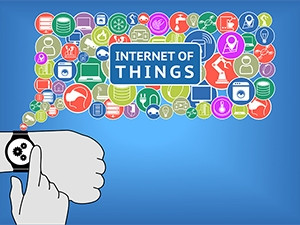
The market for connected devices in SA will account for $2 billion of the global total value of $1.7 trillion by 2020.
This is according to the International Data Corporation (IDC), which says the Internet of things (IOT) opportunity in Africa is enormous. The continent is likely to house around one billion connected devices by the turn of the decade, says the IDC.
George Kalebaila, senior research manager at IDC Sub-Saharan Africa, believes the only way to capitalise on this huge opportunity is through collaboration.
"No one industry player can provide an end-to-end solution on its own, so partnerships in IOT are vital for leveraging the full range of benefits available in this broad ecosystem."
He adds: "The opportunities are endless, with the spread of IOT enabling smart industry, smart health, smart living, smart energy, smart transport, smart buildings, smart cities, and an overall smarter planet. Indeed, the only forces restricting the application of IOT are our imaginations and the rate at which policy frameworks can catch up to regulate the industry."
According to the global research firm, IOT is no longer just a buzzword in SA, with recent research showing 33% of enterprises in the country are planning significant investments in IOT over the next three years.
The manufacturing industry is leading this charge, followed closely by the transport, government, retail, and utilities sectors, says the firm.
However, the IDC says while the potential benefits are clear, the continent will have to overcome a number of challenges in order to capitalise upon them.
There is currently a lack of consolidated standards, and information technologies have yet to fully converge with their operational counterparts. There are also still concerns around the security and privacy of the data being collected, as well as maturity of the regulatory frameworks. Other challenges impacting Africa's IOT landscape include IT budgets and priorities, the dependence on stakeholders, and the very real shift in mindset that is required to drive digital transformation.
"It is crucial for organisations to understand precisely who the final customer of a given IOT implementation is," says Kalebaila.
"In this regard, the CIO must continue to be the leading IOT decision-maker to ensure there is a holistic view of business needs and that the organisation doesn't suffer from a range of disparate approaches driven by different lines of business. It is vital to ask the right questions and understand what the impact of IOT is going to be on the overall business model, while also retaining clarity on exactly where the organisation's IOT content is going to be created and then processed."
Share